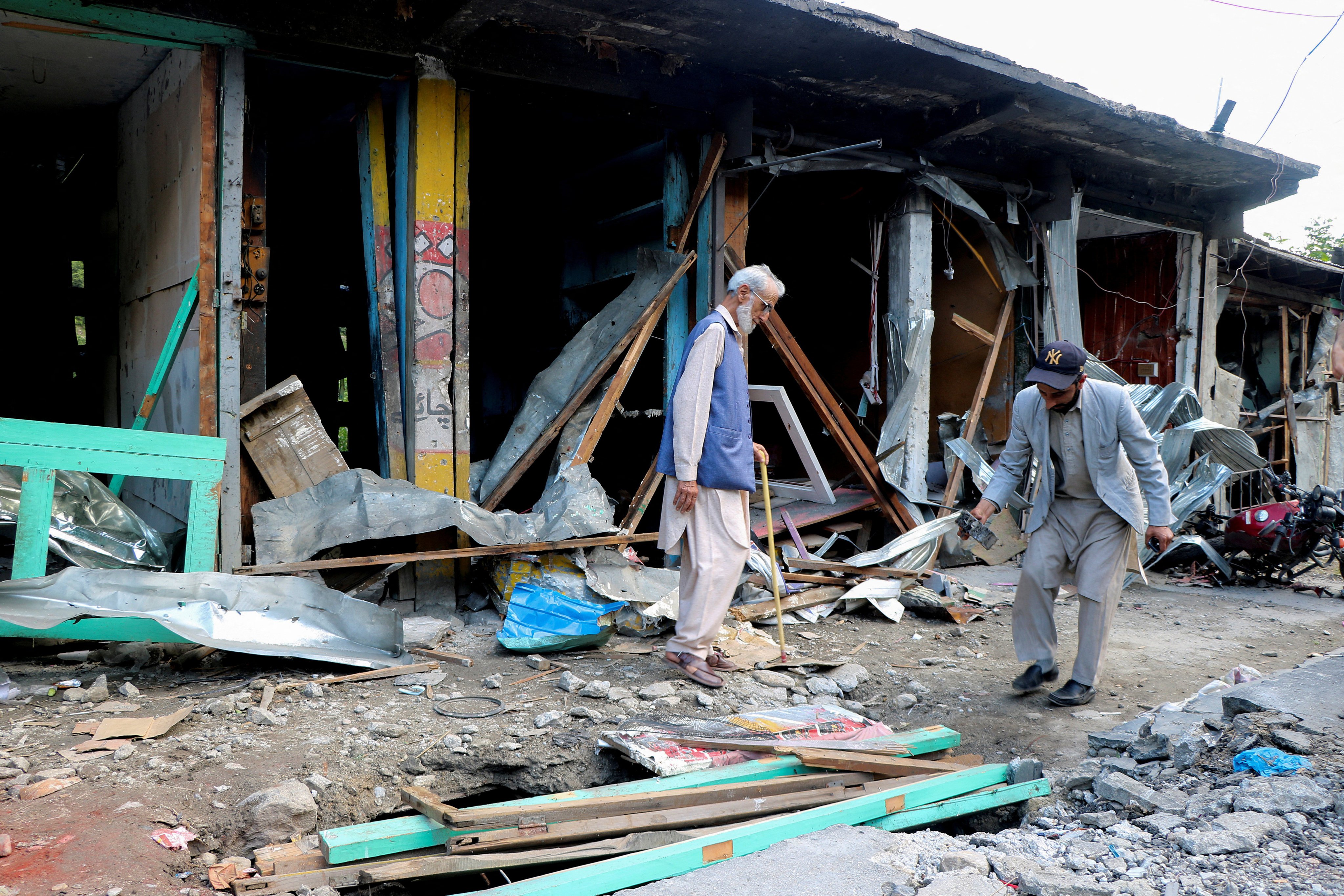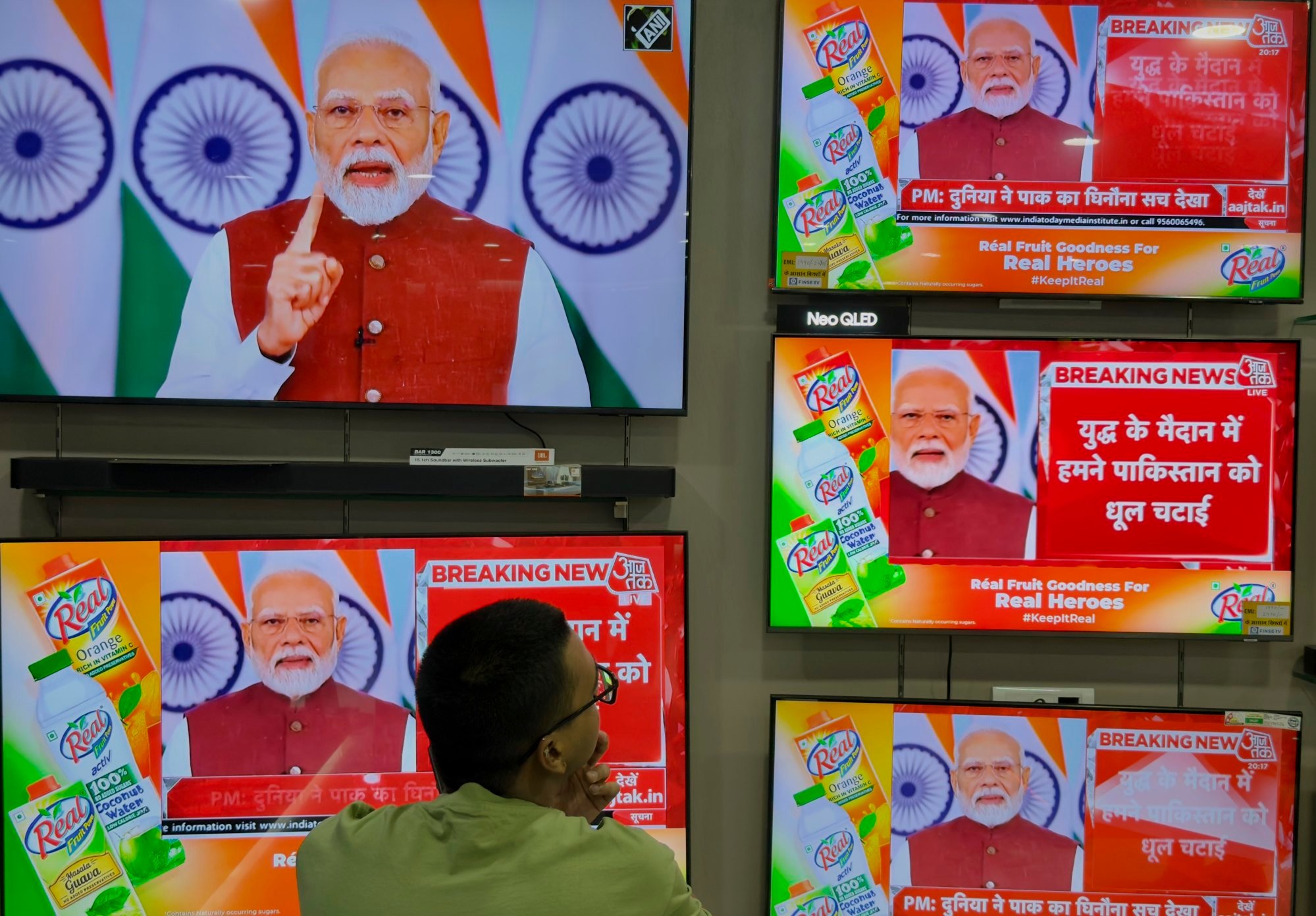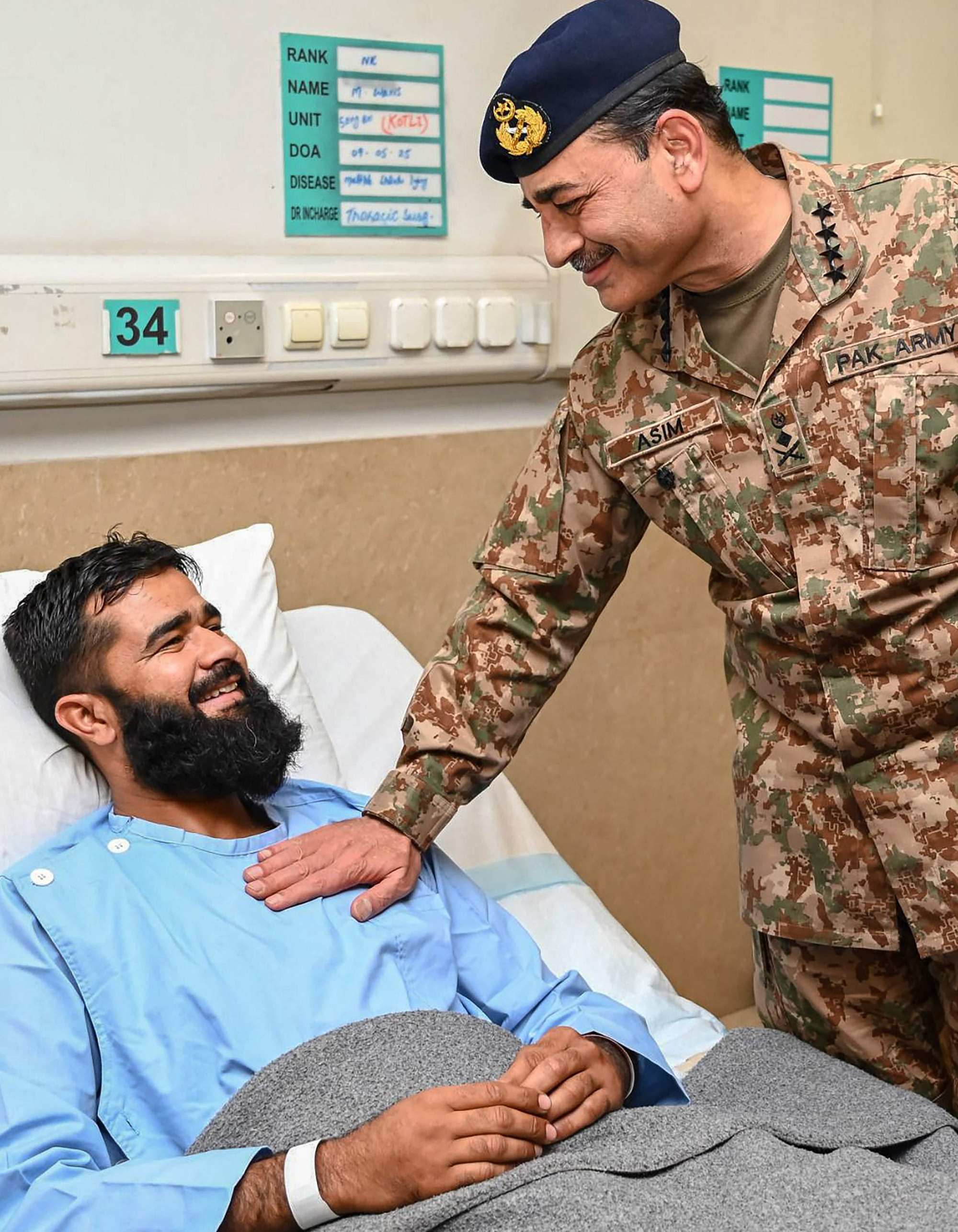India-Pakistan ceasefire: will Trump’s mediation lead to permanent peace?
While the US president boats of a ‘permanent’ ceasefire, India’s Modi says the conflict with Pakistan is only on pause

As Pakistan and India bury their dead from four days of cross-border clashes, US President Donald Trump’s use of trade and tariffs to coerce the nuclear-armed neighbours into talks has evoked starkly different reactions from New Delhi and Islamabad.
In Pakistan, the government and public celebrated what they called a “victory” after their Chinese-armed air force and air defences repeatedly repelled Indian warplanes and drones that breached the country’s airspace between May 7 and 11. Trump’s offer to mediate talks on Kashmir, proxy warfare, and India’s suspension of the Indus River water-sharing agreement was warmly received, fuelling a sense of triumph.
In India, however, the mood was more sombre as politicians and media outlets grappled with the reality of a military stalemate, a bitter contrast to the expectations of an overwhelming victory stoked by fiery rhetoric and live broadcasts proclaiming the Pakistani military’s imminent defeat.
Appearing to reject Trump’s mediation overtures, Prime Minister Narendra Modi said on Monday that the conflict with Pakistan had merely been “paused”. In a televised address, he pledged vigilance and warned that any future terrorist attack attributed to Pakistan would be treated as an act of war.

“We have only paused our military action. In the coming days, we will measure Pakistan’s every step by what action it adopts,” Modi said.
“Terror and talks cannot coexist. Terror and trade cannot go hand in hand. Water and blood can never flow together.”
Trump, meanwhile, took credit for engineering the ceasefire. “My administration helped broker a full and immediate ceasefire, I think a permanent one, between India and Pakistan, ending a dangerous conflict of two nations with lots of nuclear weapons,” he boasted.
‘Rationality takes a holiday’
Despite the ceasefire, which took effect on Saturday, experts on the India-Pakistan dispute told This Week In Asia that the situation remained on a knife’s edge.
Dave Des Roches, a former senior US defence official, described the India-Pakistan dynamic as perpetually irrational.
“Both India and Pakistan never miss an opportunity to miss an opportunity,” said Des Roches, now a professor at the Near East South Asia Centre for Strategic Studies, the Pentagon’s regional research centre. “It’s almost as if rationality takes a holiday in this confrontation.”
He cautioned that Pakistan’s confidence in having the “upper hand” could provoke an overreaction from India in any future crisis.
Joshua White, a former senior adviser on South Asia at the White House, expressed scepticism over the prospect of dialogue.
“I would be surprised if these talks take place, and even more surprised if they take place with the kind of agenda suggested by the United States,” he said. Trump’s public musings on Kashmir and US Secretary of State Marco Rubio’s announcement of “broad talks” were, White argued, at odds with “India’s diplomatic and strategic interests”.
Delhi has insisted that any bilateral talks focus solely on terrorism, a stance that was “likely to be a non-starter for Islamabad”, said White, an international-affairs professor at Johns Hopkins School of Advanced International Studies.
Des Roches suggested that Modi might agree to indirect talks to placate his domestic base.
“The Indians will ask for some mechanism to control terrorist attacks out of Pakistan, and both sides will probably seek to establish rules for flights along the border,” he said.
Pakistan’s claims of shooting down Indian aircraft in Indian airspace showed both sides would “have an interest in ensuring they can operate military aircraft in their own airspace without provoking a hostile response”, Des Roches said, requiring the establishment of some “rules of the road” to avoid further escalation.
Military and militancy
Fahd Humayun, an assistant professor of political science at Tufts University, highlighted India’s long-standing refusal to accept third-party mediation “when it comes to engaging Pakistan”.
For talks to proceed, Delhi would “have to admit that it is in fact open to third-party mediation, at least on the modality of talks”, he said. Kashmir, the suspended Indus Waters Treaty, and cross-border terrorism would inevitably dominate the agenda, he added.

Even so, analysts who spoke to This Week in Asia doubted that Pakistan would dismantle the militant groups that have repeatedly stoked hostilities with India, and were behind the April 24 massacre of 27 tourists in Indian-administered Kashmir.
After Saturday’s ceasefire took hold, Prime Minister Shehbaz Sharif vowed to restore Pakistan’s “international standing”, but the country’s crackdown on groups like Jamaat-ud-Dawah and Jaish-i-Muhammad – largely in response to international pressure – may not mark a lasting shift. Many of these groups have pivoted to philanthropy and politics, but these have been labelled terrorist fronts by the global community and their dormant networks remain a concern.
White said it was “hard to be optimistic” about the prospect of Pakistan’s military “fundamentally altering its long-standing support for anti-India militant groups”.
While such a shift would benefit Pakistan strategically and economically, there was no evidence that military leaders, including Army Chief General Asim Munir, were “interested in making this kind of foundational strategic shift”, he said.
“There’s no question that sub-conventional tactics are dangerous for peace and stability in the region,” Humayun warned, adding that both nations had been victims of the other’s proxy warfare.
A recent speech by Munir, in which he described Kashmir as “Pakistan’s jugular vein”, suggested little appetite for change in Islamabad’s strategy.
Humayun argued that for any progress, the two nations would need to address not only militancy in Kashmir but also Pakistan’s accusations of Indian interference in Balochistan and Khyber Pakhtunkhwa. Private agreements on some basic rules of engagement would be a good starting point, he said.
Without third-party oversight, Humayun added, India would continue blaming Pakistan for any unrest in Kashmir, from stone-pelting to armed insurgency. The region’s instability remained a dangerous flashpoint for the nuclear-armed rivals, he concluded.